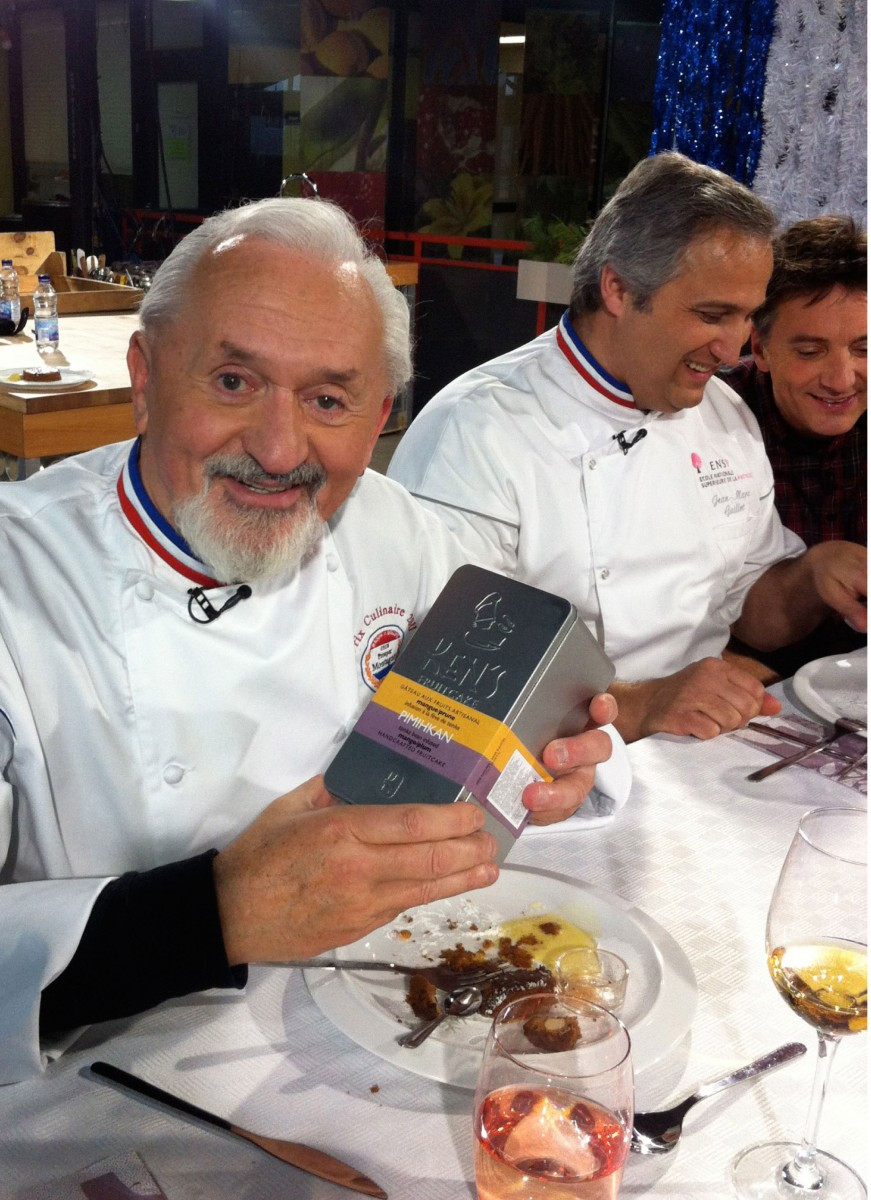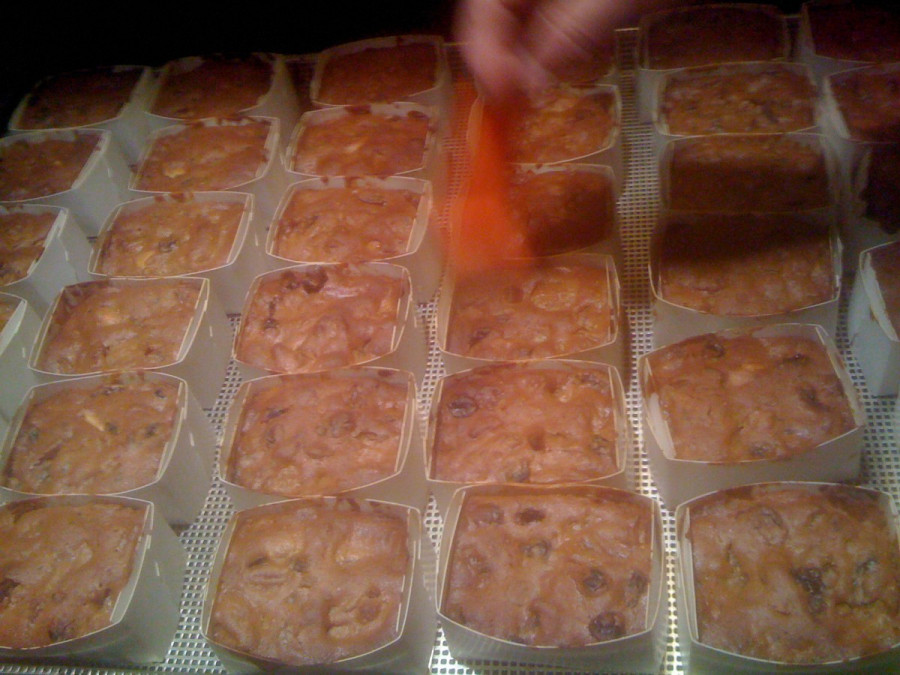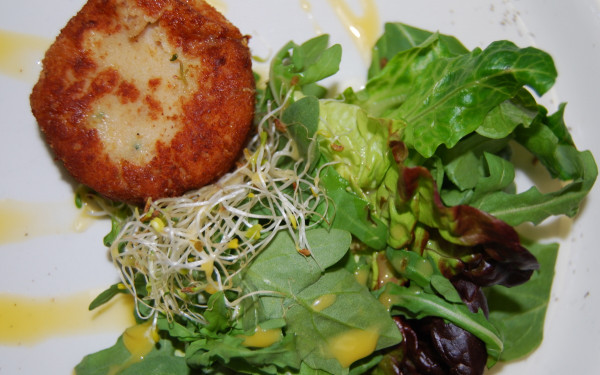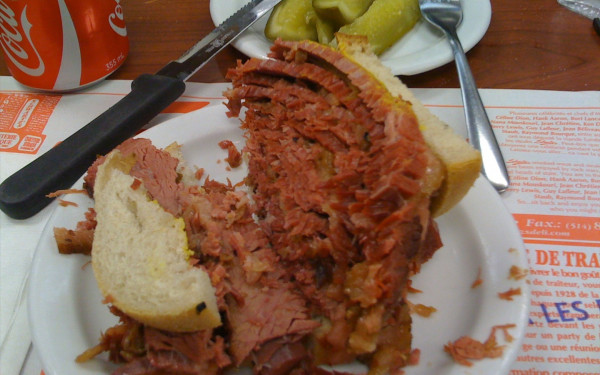Fringe Food
Tasting a Former Time
When Ken Ilasz began baking fruitcake according to a recipe handed down by his Austrian great-grandmother, he had no idea of the profound connections it might hold right here in Montreal.
“People have very strong reactions, emotional responses. They all have the same story, whether they come from Westmount or whether they come from Rosemont,” he said, leaning on the massive wood countertop that dominates the kitchen of his Brébeuf St. bed-and-breakfast.
“It goes something like, ‘Oh Ken, this cake reminds me of my Auntie Lucille in Trois-Rivières, she used to bake these cakes at Christmas time and give two to my uncle, two to my mother, and two to my grandmother, and I haven’t had this taste in 40 years,’” he laughs. “You get this story over and over again. It’s this yearning to a former time, a past place.”
His fruitcakes serve to slow down time in more ways than one. Aged anywhere between three months and two years, the fruitcakes are the product of a litany of laborious processes—weighing, fruit-marinating, cake-curing—none of which make for a rapid venture.
The rich, tangy and delightfully heady taste that results is so authoritative that it forces you to stop, to halt, to reflect. It seems almost a provocation to the industrial food realm, where volume and speed reign supreme.
“As food consumers, we’ve gotten the short end of the stick for a long time,” says Ilasz, “But why should this come as a surprise? Industrial food is derived from a model that is, at the end of the day, designed to keep shareholders happy.”
But Ilasz—whose fruitcakes feature Quebec maple syrup and Saskatchewan flour—did not set out to be a slow food crusader, nor does he necessarily see himself as one today.
“Of course people are interested more and more in small batches, slower production, and quality ingredients. But what I find most rewarding about this whole experience is when people come in here and tell me how the fruitcake brings them back to their youth, or reminds them of a loved one.”

So how does a Toronto native with Ukranian roots end up as Quebec’s undisputed king of fruitcakes?
“It started with a girl,” he says simply. “I was smitten with a woman from Japan and I went there to see her. The Japanese have a very intricate culture of gift-giving. Many people there who tasted my fruitcake loved it, and thought it could make for a very popular gift.”
And they were right.
A few years later, he was selling hundreds of fruitcakes annually to the North Pacific island.
Though Ilasz never expected to raise much of a stir locally, his Japanese love affair also precipitated his prominence at home. It was on a trade mission to Japan that noted Radio-Canada and Le Devoir journalist Philippe Mollé stumbled upon a box of something called “Ken’s Fruitcake” in a Tokyo department store. Bowled over by the taste, Mollé checked the label, only to find out that it was made in his own backyard. He convinced Ilasz to offer his goods to Montrealers at large.
Today, Ilasz remains flooded with requests for his great-grandmother’s recipe, but has also branched out into more exotic territory. Recent fruitcake innovations include a apricot-saskatoonberry, pear-fig-poppy seed, and Inca berry-apple—all of which are free of lard and sulphites.
Ilasz—who is on the Quebec maple industry’s featured shortlist of artisanal producers—continues to eschew large-scale production. He has no employees, and bakes and sells most of his cakes right out of his own home. And if you’re thinking of swinging by, make sure you jot down the right address, because there isn’t a sign.
“I feel as if I’m playing, quite frankly,” said Ilasz. His latest riff off fruitcake lore inhabits a set of mason jars. An array of liquors envelop various roots, seeds and herbs, seeping up their concentrated flavours. This cold-infusion is, essentially, home spice-making. Having long sought alternatives to the dry spices used in his traditional cakes, Ilasz says that his own concoctions—such as ginger root with rum, cardamom and brandy, or a handful of tonka beans marinated in Cointreau—offer more depth and flavour complexity to the cakes.
Ilasz, who one day wants to make a documentary on the fruitcake, sees it as a sort of underrated storehouse of memory, sensation and emotion.
“It’s a bit like fighting for the underdog. The fruitcake has been lambasted and made the subject of bad jokes for years. Yet everybody wants to claim it. I think it says something that so many cultures claim the fruitcake as their own. The British, the Québécois, the Germans, the Americans: they all take ownership for it, and they all have these powerful memories associated with it. It’s weird and amazing how the head and the heart come together over this cake.”
The aptly-named “Ken’s Fruitcake” can be found at Boulanger-Bassin B&B (4293 rue de Brébeuf) or Latina (185 St-Viateur ouest).
SWEET BONUS! An abridged geo-political history of fruitcake, according to Ken!




2webedit_600_375_90_s_c1.jpg)


_600_375_90_s_c1.jpg)